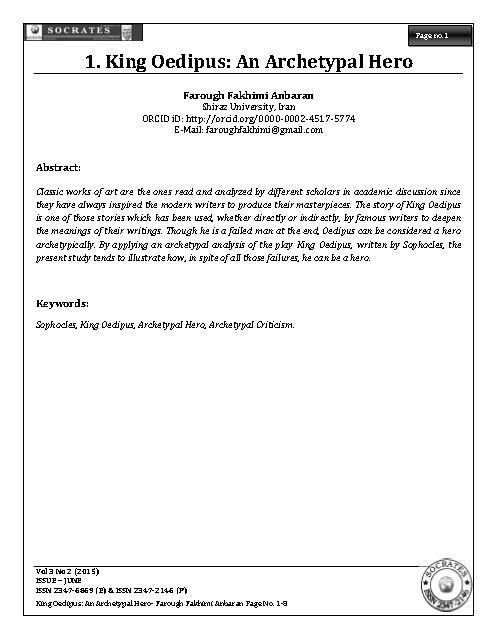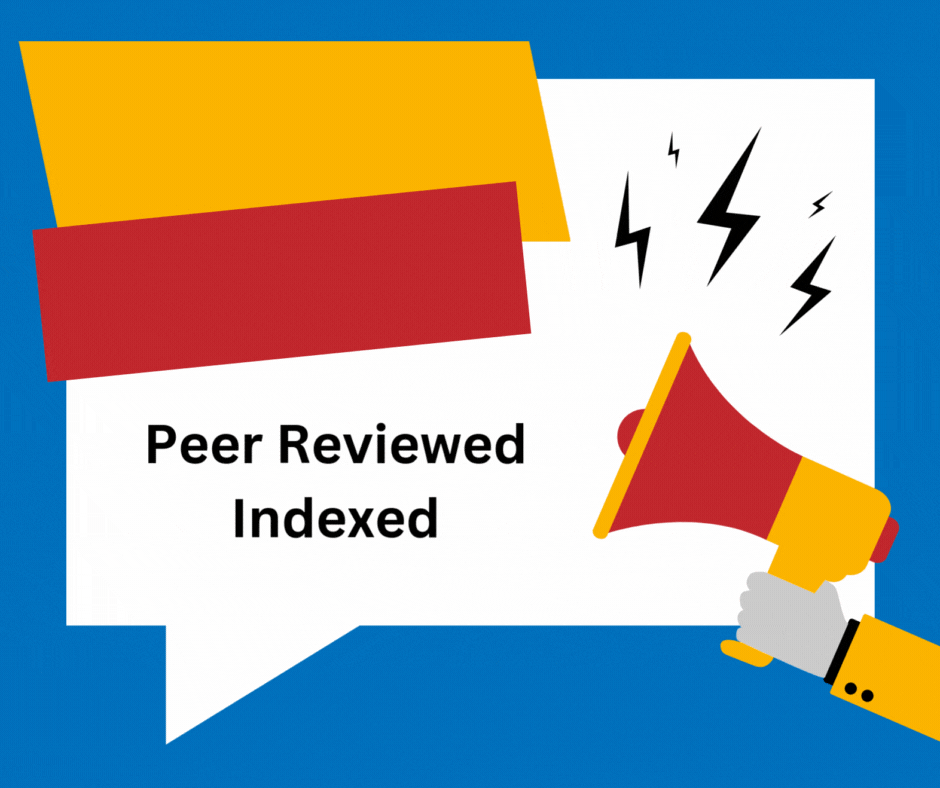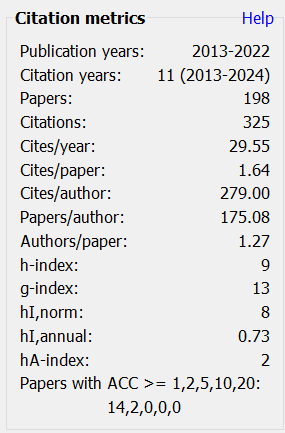King Oedipus
An Archetypal Hero
Keywords:
Sophocles, King Oedipus, Archetypal Hero, Archetypal CriticismAbstract
Classic works of art are the ones read and analyzed by different scholars in academic discussion since they have always inspired the modern writers to produce their masterpieces. The story of King Oedipus is one of those stories which has been used, whether directly or indirectly, by famous writers to deepen the meanings of their writings. Though he is a failed man at the end, Oedipus can be considered a hero archetypically. By applying an archetypal analysis of the play King Oedipus, written by Sophocles, the present study tends to illustrate how, in spite of all those failures, he can be a hero.
Downloads
Metrics
References
Coupe, L. (1997). Myth. London: Routledge.
Evans, R. I. (1979). Jung on elementary psychology: a discussion between C. G. Jung and R. I. Evans. London: Routledge & Kegan Paul.
Gue, Y. (2006). Oedipus Rex: fate, truth, and self-will. Canadian Social Science 2.4, 45-49.
Guerin, W. L., et al. (2005). Mythological and archetypal approaches. In A handbook of critical approaches to Literature. 5th ed. New York: OUP, 182_222.
Hardin, R. F. (1989). Archetypal criticism. In Contemporary literary theories. Ed. G. D. Atkins & L. Morrow. Massachusetts: University of Massachusetts press, 42-59.
Henderson, J. L. (1978). Ancient myth and modern man. In Man and his symbols. London: Pan Books Ltd, 95-157.
Higgins, C. and Higgins, R. (2000). CliffsNotes on Sophocles’s Oedipus trilogy. New York: Wiley Publishing, Inc.
Knox, B. M. W. (1966). Oedipus at Thebes. New Haven: Yale University Press.
Sophocles. (1976). King Oedipus. In The Theban plays. Trans. by E. F. Watling. Middlesex, England: Richard Clay (The Chaucer Press) Ltd.
Walker, S. F. (2002). The strange mythology of the psyche: the hero, wise old man, Great Mother, Divine Child, and Self. In Jung and the Jungians on myth: an Introduction. New York: Routledge,63-91.
Whitman, C. H. (1966). Irrational evil: Oedipus Rex. In Sophocles: a study of heroic humanism. Massachusetts: Harvard University Press, 122-144.

Downloads
Published
How to Cite
Issue
Section
License
Revised Copyright/CC license that applies to all the articles published after 05-02-2017
Attribution-NonCommercial 4.0 International (CC BY-NC 4.0)

Copyright/CC license that applies to all the articles published before 05-02-2017
Attribution-Non Commercial-No Derivatives 4.0 International (CC BY-NC-ND 4.0)

Author(s) will retain all the right except commercial and re-publishing rights. In the case of re-publishing, they will have to obtain written permission from the journal. Additional licensing agreements (Creative Commons licenses) grants rights to readers to copy, distribute, display and perform the work as long as you give the original author(s) credit, they can not use the works for commercial purposes and are not allowed to alter, transform, or build upon the work. For any reuse or distribution, readers and users must make clear to others the license terms of this work. Any of these conditions can be waived if you get permission from the copyright holders. Nothing in this license impairs or restricts the authors’ rights. To view a copy of this license, visit http://creativecommons.org/licenses/by-nc-nd/4.0/ or send a letter to Creative Commons, 171 Second Street, Suite 300, San Francisco, California, 94105, USA.
Research Papers published in SOCRATES are licensed under an Attribution-NonCommercial-NoDerivatives 4.0 International (CC BY-NC-ND 4.0)












